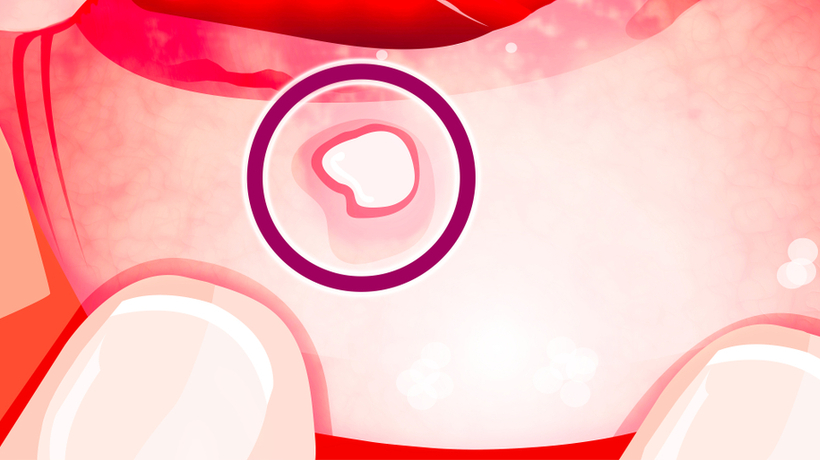In fall of 2020, Katie Drablos noticed a canker sore on the back of her tongue. As the pain got worse, she visited urgent care. Shortly after, Drablos found out she had tongue cancer.
“I was not in the age group or having lived a life that would leave me to be privy to something like oral cancer,” the dance choreographer told TODAY. “By sharing my story maybe someone can feel less alone and feel more able to express their feelings and reach out if they need help so we can all get through the tough days and keep finding joy.”
Drablos wasn’t able to see the canker sore, but she felt the tiny spot on the back left side of her tongue. At first, the sore wasn’t painful, and it slipped her mind to talk to her dentist about it in November 2020.
“Because of the placement, it was hard for me to see it. If it had been on the tip of my tongue I’d probably would have been like, ‘Oh that doesn’t exactly look like a normal canker sore,’” she said.
But the sore didn’t go away. By January 2021, Drablos was in serious pain, and it was becoming unbearable.
Eventually, Drablos visited urgent care and was prescribed antibiotics for what the doctor thought was a cold sore.
“I came home from teaching, and my throat was hurting a little bit,” Drablos said. “I was like, ‘I need to go to the doctor again because this isn’t going away.’”
Drablos sought out Dr. Diana Kirke, an otolaryngologist at the New York Eye and Ear Infirmary of Mount Sinai. During Drablos’ first visit, Kirke had a suspicion about what the sore could be.
“Within one second she was like, ‘We’re going to biopsy this right now,’” Drablos recalled.
Drablos’ biopsy indicated she had tongue cancer. At the time, the follow-up scan didn’t detect any cancer outside of her tongue, implying she had stage two cancer.
Doctors decided removing the canker on her tongue and dissecting her neck would be an adequate course of action. The neck dissection would make sure they could reach all cancer lesions if they were deeply implanted.
On April 1, 2021, Drablos’ 34th birthday, she received a call from doctors saying that they had found cancer in her neck, meaning that her disease was in stage four and she would require radiation and chemotherapy.
“The surgery affected so many parts of my body,” Drablos said. “The flap they used to reconstruct my tongue involved major surgery on my left arm, and then they grafted with skin from my left leg.”
She finished her treatment around June 2021 and began the road to recovery. She still struggles with eating, drinking and speaking, but was able to return to what she loves the most: dancing.
“Dancing has been the best medicine, keeping me mentally feeling like myself, being able to express my emotions,” she said.
Tongue cancer in younger populations
The people who are most likely to develop tongue cancer are men over 60 who are smokers and drank most of their lives.
“We’ve started to see anecdotally in the last 10 years … a shift to a younger age group, and by younger, I mean below the age of 40, unrelated to previous drinking and smoking history,” Kirke told TODAY.
According to Kirke, symptoms of tongue cancer include persistent tongue pain, an ulcer that lasts more than two to four weeks and bleeding from the ulcer.
People often ignore canker sores because of how common they are.
“That’s the reason for delayed presentation, especially in the younger population, because they attribute it to, ‘Oh it’s just a canker sore,’ or ‘It’s a dental problem,’” Kirke said. “They just wait for it to go away.”



